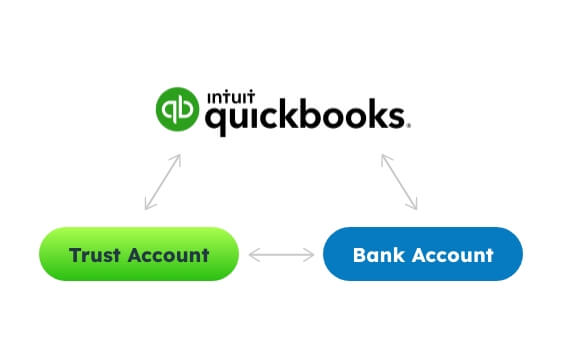
Being a mid-sized legal firm can sometimes be hard.
Whereas there seem to be certain best practices that apply to small firms and large firms, knowing how to best run and operate a mid-sized firm can be challenging, to say the least.

Key Takeaways
- Mid-sized law firms are too big to rely on just the basics, but also don’t need to be spending time and money on bells and whistles that aren’t right for their mid-sized practice.
- Thanks to some big advancements in the world of alternative law practice management software, mid-sized firms can now begin to create customizable legal practice management software systems that work specifically for their firm.
- New technology in the legal practice management software world is leading firms to adopt a “tech stack” approach to their software systems, utilizing platforms they already have in place and enhancing those with new ones.
Law firms, like many businesses, can vary in size regarding the number of attorneys to the number of staff that supports them.
Across the United States, there are firms that range in size from sole practitioners to literally hundreds or even thousands of lawyers.
Some firms have single-room offices in very small towns while others have dozens of offices in major cities around the world. And while size isn’t everything, there will oftentimes be some differences between these various firms that are quite distinct, based on the number of people that a certain firm employs and the number of clients it serves.
For mid-sized firms, these distinctions can sometimes be more challenging than for small or large firms, since “mid-sized” can encompass a large range of practices.
In the past, deciding if your mid-sized firm should follow a similar model to a small firm or a large firm has sometimes been tricky, especially when it comes to software needs, since the traditional all-in-one legal practice management software systems previously designed were oftentimes created either for a small practice or a large practice in mind.
But thanks to some big advancements in the world of alternative law practice management software, mid-sized firms can now begin to create customizable practice management software legal systems that will be perfect for their staff and client size.

What is the definition of a Mid-Sized Law Firm?
In the legal profession, most people define a mid-sized law firm as one that is bigger than a solo practice and smaller than a firm that has offices in various cities or states, also sometimes known as a global firm.
Clearly, the title “mid-sized law firm” is going to end up encompassing a large number of practices.
So when does size matter?
Mid-sized law firms will need certain types of legal practice management software features that solo practitioners may not, since there can be additional complexities as well surrounding timekeeping as well as billing and payments.

Often the managing partner will start managing these processes and – once they scale and hire more attorneys – they will need someone full time like a firm administrator to take over these tasks so the attorney can get back to doing what they do best.
Yet mid-sized law firms may not need some of the more intricate features that large, global law firms will.
Some of the features that will be essential to the task management and matter management of a mid-sized law firm are as follows:
Document Management: Any mid-sized law firm will need to have a good document management system in place, since there will be more than one attorney practicing and plenty of legal document management to prepare and organize.
Client Management: Managing and maintaining clients is an integral part of a mid-sized law firm’s success and a solid client management system will be key to ensure that nothing is forgotten and that client communication and tasks are always a high priority.
Contact Management: As with client management, having a good system in place for contact management will be crucial for a mid-size law firm.
Case Management: As a mid-sized law firm grows, so too will the number of cases that are currently active, and having a system that keeps track of all the various tasks associated with case management will be necessary for any mid-sized law firm.
Document Storage: How and where your firm stores all its documents will depend on the system you have in place, but making sure you give ample thought to document storage is key.
Administrative Tasks: Clearly, the larger your firm, the more administrative tasks there will be to perform. Having a system that keeps such tasks organized and easy to track will be a big deal, the bigger your firm grows.
Firm Accounting: The more attorneys your firm has the more complicated your firm accounting will become. Though all the above tasks are important to your mid-sized firm’s success, having the right legal accounting tools in place is going to make an enormous difference in the overall operations of your firm.
Being a mid-sized law firm means that you will want to make sure that all these various practice management tasks are prioritized, organized, and carefully thought through.
When you are thinking about what types of practice management software systems are going to work best for your mid-sized practice, you’ll want to look for a practice management software system that is advanced enough to support all the various task management and matter management needs that face your firm.
You will also want to ensure that you are not paying for or trying to implement workflow management tasks that are too grandiose and/or complicated for a mid-sized law firm like yours.
As a mid-sized law firm, you are too big to rely on the basics anymore but don’t need to be spending time and money on legal software bells and whistles that aren’t right for your mid-sized practice.

What is the definition of a Legal Practice Management Software System?
Simply put, a law practice management software system is a type of technology that is used by law firms to streamline all their various forms of matter management while also centralizing all tasks and automating many of the day-to-day practice’s operations.
Traditionally, these legal practice management software systems have been referred to as, “all-in-one legal practice management systems.”
Legal practice management software systems that have historically claimed to be all-in-one systems are designed to replace any and all practice management software that you already have.
But new technology seems to be redefining this term.
New technology is now on the market that will allow mid-sized law firms to have alternative options when the best legal practice management software for their legal practice.

What Types of Alternative Law Practice Management Software Would Work for My Mid-Sized Law Firm?
If your mid-sized law firm is starting to explore the possibility of implementing a new type of practice management software system, consider learning more about LeanLaw, a great alternative to the traditional all-in-one law practice management software of the past.
LeanLaw is a legal accounting software company that was founded by legal professionals for legal professionals.

Designed to work with many of your current software platforms in mind, LeanLaw is built on what is called a “tech stack.”
A tech stack is the foundation of your practice’s management software. It is comprised of management systems that are already working well for your staff and clients while also bringing in new systems that will simply enhance (and ultimately improve) what you already have.
Schedule a demo
One example of where a tech stack would work well in your legal practice is in regard to your contact management.
Let’s say you installed your new practice management software for its case management capability, but its contact management (emails, address book, calendar, etc) is frustrating to use.
This can also happen with the timekeeping and billing portion of all-in-one practice management software. Often the billing and accounting function (LeanLaw’s specialty!) is lackluster, which will frustrate your staff even more.
Not only will you and your staff have to load a ton of new information into the software before you can even use it, but you will also have to learn new systems even though some of your previous ones work just fine.
In a situation like this one, will your staff even use the new practice management software to its full potential? And if not, what’s the point in paying for it?
Here are some basic questions that you may want to ask yourself to decide whether or not a tech stack practice management software system is going to work better for your firm than a traditional all-in-one system that may be more cumbersome and redundant than you originally thought:
1. Do you already have certain software systems in place that your staff and your clients really enjoy using?
If you’ve already got some favorite systems in place, such as Outlook 365 for all your administrative tasks, or QuickBooks Online for your preliminary accounting needs, you may realize that a tech stack software system like LeanLaw is going to work better for your practice than the all-in-one models that will force you to start from scratch.
2. Do you find that the current software applications in your firm gets the job done, but you’d like to add in some other systems that would work with enhancing what you’ve already got?
Using QuickBooks Online as an example, a tech stack solution like LeanLaw is legal accounting software built on top of your QuickBooks Online platform. There is no need to start from scratch…you simply enjoy the additional features that LeanLaw brings to the accounting table instead.
3. Do you worry about the cost of new software as well as the cost associated with training staff while also keeping productivity and accuracy high?
Staff training is a big expense for law firms, and staff retention is a big priority. Allowing staff to have a voice in what sorts of software implementations are going to be brought into your law firm will not only result in many of your staff members needing little to no training on future endeavors, but it also will result in the morale being high and your valuable employees continuing to enjoy their jobs.

Are You Ready to Learn More? Reach Out to LeanLaw Today!
For any midsize law firms that are interested in streamlining their workflow while also cutting some costs, LeanLaw may be the perfect cloud based solution for many of your management needs.
LeanLaw is carefully designed specifically for mid-sized law firms in mind and can help you create a customized tech stack to fit your workflow.
While working with certain software systems you already have in place, LeanLaw will also work with QuickBooks Online to ensure that your legal practice:
Schedule a demo
- gets paid faster with invoice delivery and online payments
- can track profitability by attorney, client, or specific matter
- can run compensation reports with the click of a button
- will always be in sync with time tracking, billable hours, and trust accounting
Modern law firms are moving away from the complicated features that all-in-one practice management systems have tried to claim are the only way for a firm to be competitive and successful.
With LeanLaw’s customized best-in-breed innovations, you will quickly see how our software program can seamlessly integrate into your favorite tech stack.
Whether you’re a brand-new firm starting from scratch or a well-established one that is looking to improve some of your current administrative and accounting needs, check out our free demo today!
Let LeanLaw show you how our software system can be the best law practice management solution for you.






